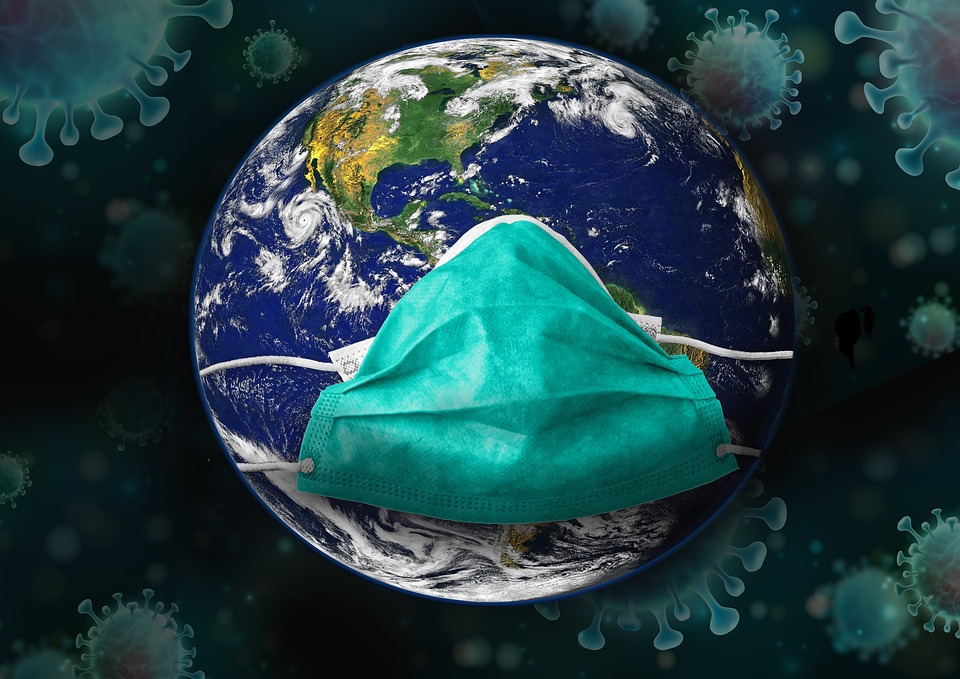Immunity Myths Debunked: What You Really Need to Know
Immunity is a complex and often misunderstood aspect of human health. In the wake of pandemics and health scares, many myths have emerged regarding how our immune system functions, what strengthens it, and how vaccines play a role. This article aims to debunk some of the most common myths surrounding immunity, providing you with clear and scientifically backed information on what you really need to know.
Understanding Immunity
Before we delve into the myths, it’s essential to grasp what immunity entails. The immune system is our body’s defense mechanism against pathogens—bacteria, viruses, fungi, and parasites. It comprises various cells, tissues, and organs that work together to identify and neutralize these invaders.
There are two primary types of immunity:
-
Innate Immunity: This is the first line of defense, providing a general defense against pathogens. It includes physical barriers such as skin and mucous membranes and immune cells that respond quickly to infection.
- Adaptive Immunity: This is a more specialized response that adapts over time. It involves lymphocytes—B cells and T cells—which remember specific pathogens and mount a stronger attack upon subsequent exposures.
Common Myths About Immunity
Myth 1: More Vitamin C Means Stronger Immunity
Many people believe that ingesting large amounts of Vitamin C can prevent or reduce the duration of colds and other illnesses. While Vitamin C is essential for the immune system, with deficiency linked to increased susceptibility to infections, the idea that mega-doses of it can significantly bolster immunity is a myth.
Studies have shown that while Vitamin C can help shorten the duration of illnesses, it does not prevent them outright. The best approach to immunity is to maintain a balanced diet rich in fruits and vegetables, which provide not only Vitamin C but a host of other nutrients critical for immune health[^1]^[2].
Myth 2: Vaccines Weaken the Immune System
Another prevalent myth is that vaccines weaken the immune system. In reality, vaccines are designed to strengthen the immune response. They mimic infection, preparing the immune system to fight off real pathogens without causing the disease itself.
For instance, vaccines contain weakened or inactivated parts of a germ, known as antigens. The immune system responds by creating memory cells that recognize and combat the pathogen in the future. This process enhances the immune system’s efficiency rather than diminishing it[^3].
Myth 3: You Can "Boost" Your Immune System
The notion of "boosting" the immune system is misleading. The immune system is not a singular entity that can simply be enhanced or fortified. Instead, it operates on a delicate balance. Factors such as exercise, diet, sleep, and stress management can optimize immune function, but excessive stimulation can lead to autoimmune disorders.
One can support the immune system through a healthy lifestyle—adequate sleep, regular exercise, a balanced diet, and managing stress—rather than attempting to boost it artificially[^4].
Myth 4: Stress and Anxiety Have No Impact on Immunity
Chronic stress and anxiety can significantly impact immunity. When the body experiences stress, it produces hormones like cortisol that can suppress the immune response. Long-term stress can lead to slower wound healing, increased infections, and other health problems.
Research indicates that stress management techniques, such as mindfulness, yoga, and meditation, can enhance immune function. Therefore, it’s crucial to recognize the interplay between mental health and immune health[^5].
Myth 5: Natural Remedies Can Replace Vaccines
Some believe that natural remedies can serve as substitutes for vaccines. While certain herbs and supplements may have immune-supportive properties, they cannot replace the specific and effective protection that vaccines offer against serious diseases.
Natural remedies lose efficacy against diseases that vaccines have effectively eradicated or controlled. Vaccination remains a cornerstone of public health, preventing outbreaks of illnesses like measles, polio, and influenza[^6].
Myth 6: Antibiotics Can Treat Viral Infections
A significant misunderstanding persists regarding the use of antibiotics. Antibiotics are effective against bacterial infections but have no effect on viral infections such as the flu or COVID-19. Misusing antibiotics can lead to antibiotic resistance, making it harder to treat bacterial infections in the future.
Education about the distinction between bacterial and viral infections is crucial for public health. Relying on antibiotics inappropriately can weaken the overall system that relies on these powerful drugs when genuinely needed[^7].
Myth 7: Aging Weakens the Immune System Beyond Repair
It’s common to think that aging inevitably leads to a weak immune response. While it’s true that older adults may experience a decline in immune function—known as immunosenescence—this does not mean the immune system cannot be optimized in older age.
Regular exercise, a nutrient-rich diet, social engagement, and sufficient sleep can enhance immune function and reduce the risk of infections, even in older individuals[^8].
Myth 8: If You’re Healthy, You Don’t Need Vaccines
Some people believe that if they are in good health, they do not need vaccines. However, vaccines are beneficial not just for individual immunity but for community health through herd immunity. When a significant portion of the population is vaccinated, it helps protect those unable to be vaccinated—like infants or immunocompromised individuals—from outbreaks.
Thus, vaccines play a crucial role in public health and disease prevention[^9].
Myth 9: You Should Avoid Going Outside to Stay Healthy
The idea of avoiding the outdoors to remain free from germs is overly cautious. While it’s true that some pathogens can be contracted from the environment, natural exposure to various microbes can help strengthen the immune system by allowing it to adapt and respond more effectively.
Moderate exposure to germs can enhance immunity, similar to how vaccines work. Spending time outdoors can also facilitate physical activity and mental well-being[^10].
Myth 10: All Supplements Are Beneficial for Immune Health
Supplements can play a role in supporting immune function, especially when deficiencies are present; however, the idea that taking excessive amounts of supplements leads to better immunity is misleading. Many supplements lack sufficient evidence to support their purported benefits.
In some cases, high doses of certain vitamins and minerals can yield toxic effects. Prioritizing a balanced diet over supplementation is often the best course of action unless specific deficiencies are diagnosed[^11].
Conclusion
Understanding the immune system and debunking myths surrounding it is key to maintaining good health. Relying on evidence-based practices, such as vaccination, a balanced diet, regular exercise, and stress management, is crucial in supporting the immune system.
By dispelling common myths, we can foster a more informed public that understands the complexity of immunity. The more we learn about our health, the better equipped we are to take charge of our well-being.
References
[^1]: Carr, A. C., & Maggini, S. (2017). Vitamin C and Immune Function. Nutrients, 9(11), 1211.[^2]: Hemilä, H. (2006). Vitamin C and Common Cold. The International Journal of Alternative and Complementary Medicine, 4(2), 13-18.
[^3]: Orenstein, W. A., & Ahmed, R. (2017). Simply Vaccines. The New England Journal of Medicine, 377(16), 1558-1569.
[^4]: Calder, P. C., et al. (2017). Optimal Nutritional Status for a Well-Functioning Immune System. Nutrition Reviews, 75(12), 162-192.
[^5]: Segerstrom, S. C., & Miller, G. E. (2004). Psychological Stress and the Human Immune System: A Meta-Analytic Study of 30 Years of Inquiry. Psychological Bulletin, 130(4), 601-630.
[^6]: Plotkin, S. A. (2014). Vaccines: The Newest Advances in Vaccination. Nature Reviews Immunology, 14(1), 11-14.
[^7]: Ventola, C. L. (2015). The Antibiotic Resistance Crisis: Part 1: Causes and Threats. P&T, 40(4), 277-283.
[^8]: Pawelec, G. (2018). Immunosenescence and Aging. Advances in Experimental Medicine and Biology, 1050, 1–16.
[^9]: MacDonald, N. E., & the SAGE Working Group on Vaccine Hesitancy. (2015). Vaccine Hesitancy: Definition, Scope and Determinants. Vaccine, 33(34), 4161-4164.
[^10]: Rook, G. A. W. (2013). Regulation of the Immune System by the Microbiome: The Hygiene Hypothesis Revisited. Nature Reviews Immunology, 13(10), 645-653.
[^11]: Hunt, A., & Raye, J. (2016). Dietary Supplements: A Comprehensive Review. Journal of Clinical Nutrition & Dietetics, 2(2), 1-8.
This article offers a thorough debunking of common immunity myths, delivering clarity and credible information to those seeking to understand how to support their immune health effectively.


























Add Comment